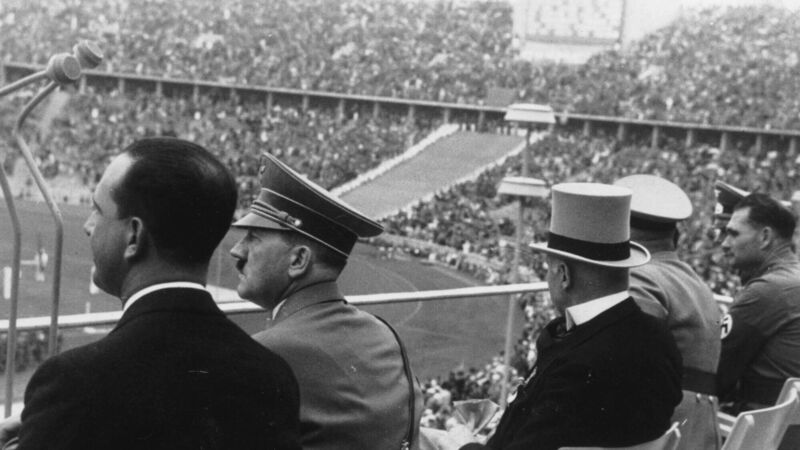Paul Rouse: Time for Olympic Federation to answer a simple question on Russia...

HISTORY LESSON: Adolf Hitler watching the Olympic Games in Berlin with the Italian Crown Prince. Picture: Fox Photos/Getty Images
Here’s a straightforward question to ask: Do the members of the Executive Committee of the Olympic Federation of Ireland think that Russian athletes should be invited to compete at the Paris Olympics of 2024?
It is important to ask this question of them – and for its President or its Chief Executive Officer to answer it with clarity.









